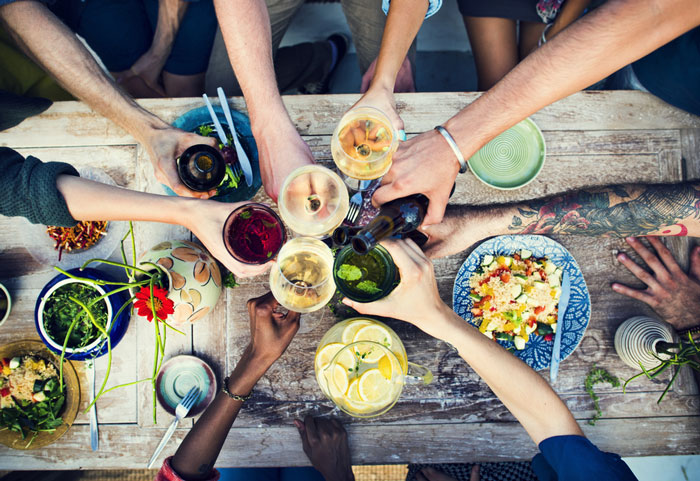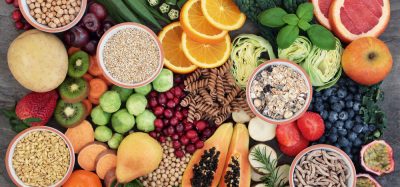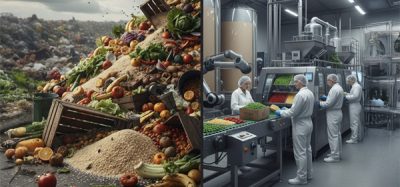Making it personal: The biggest food and drink trend of 2018
Posted: 14 November 2017 | Julie Jenson Bennett (CEO - Precipice Design) | No comments yet
Personal food is being trumpeted as one of the biggest food trends of 2018. And it certainly sounds trendy enough. But what does it really mean? Precipice Design’s CEO Julie Jenson Bennett talks us through it.


CELEBRATING INDIVIDUALITY: Julie Jenson Bennett argues that the personal food revolution has already begun.
Personal food isn’t one of these ‘flavour of the month’ fads. It’s a sign of a much bigger shift in technology and how we understand our bodies. Essentially, our human biology is being turned into data. Our cells, the processes that go on within them, the complex interactions across our genes, brains, muscles and gut. All are being digitised.
Eventually, this means you’ll have a complete model of your own body, running on a chip. Before you reach for the last doughnut, you’ll be able to simulate exactly what effect it will have on you, today, in real time. That future isn’t here yet. But knowing about that future, imagining it in science fiction films, changes how we think about today and next year.
Because now we know that our bodies aren’t all the same. I mean, we already knew that by watching our skinny friend eat all the fries and our fat friend struggle to lose weight no matter what they try. But now science is telling us the same thing. Personal food in 2018 is an early, crude attempt to act on that knowledge. It’s not personalised in the sense of customising a unique colour combination for your new Mini that you like. It’s individualised – food designed and optimised for you and your own, unique needs.
Food that lifts your mood. Food that helps you sleep.
Maybe you’ve done one of these home DNA tests you see advertised on Facebook. Or if that freaks you out, one of these home blood tests that lets you know if you’re getting enough Vitamin D or your cholesterol is edging higher. Track your food on an app? Put together macros for your gym training? Experimented with eliminating gluten, or FODMAPs, or the latest “evil ingredient of the month.” If you haven’t done this, you’re probably friends with people who have. People who don’t care what the best average diet is for a population of billions over an eighty-year lifespan. But what should I eat, for me, and for what I need to be today.
If you’re a real person who eats and drinks in 2018, or a real person who is making the products we’ll eat and drink in 2018 and beyond, here are a few thoughts about personal food to consider.
Flipping the function
The past 50 years have been dominated with the idea of food elimination. Low calorie, low fat, sugar-free, gluten-free, counting calories, intermittent fasting. Any way we can figure out to reduce our intake.
The backlash has already started (see how even Weightwatchers has ditched the ‘diet’ word). A growing chorus of intuitive eaters remind us to listen to our bodies, eat what we want, and celebrate the fact that food is essential to life and happiness. Personalised and individualised food will only intensify the focus on food’s functional and emotional benefits.
In 2018 expect much more emphasis on what is in the food, versus what is not, and why you would want to eat it. Eating for physical performance for sure. But food that helps you think better. Food that lifts your mood. Food that helps you sleep. Just putting the claim on the pack won’t be enough, we’ll need the ingredients, the data, and the ability to judge for ourselves what feeds our needs.
What are you today?
As much as we understand one diet doesn’t work for everybody, we’re also understanding that one diet doesn’t work for us. Our needs change day-by-day, or throughout the day. Witness the rise of vegan before dark, flexitarians, and sober curious drinkers.
The most valuable food and drink innovations will address this tension.
Resist the urge to put people in boxes or market segmentations, and instead give them the opportunity to explore their identity and new aspects of themselves through the food they eat. Personal and individualised food should offer much more flexibility and freedom in how you eat, rather than locking you down.
Food as social fabric
The biggest cost to us in personal food is the social glue that eating and drinking together creates. Food isn’t just fuel and function. Food is hospitality, food is negotiation of our differences, food is love. Just sense the frustration around the Christmas table as generations try and understand and accommodate individual eating needs.
The most valuable food and drink innovations will address this tension. They’ll understand that whilst food is intensely individual and personal, it doesn’t exist in a vacuum. It exists in homes, offices and restaurants that are shared by groups of people. That food doesn’t just do something for you, it means something to us all.
Julie’s five personalised brands to watch in 2018
VitaMojo is a restaurant chain pioneering the development of personalised food. Right now, you can select your meals based on your nutritional requirements. In the future, their developing software will allow you to analyse what food suits your genetic make-up and track how different foods influence your mood.
Rawligion’s Brain Mylks combine raw and vegan-friendly ingredients attributed to reducing stress, relieving pain and aiding sleep (to name a few). They are also broaching the introduction of non-psychoactive cannabinoids (CBD) to boost their effects.
The Reducetarian Foundation brings together individuals who are aiming to eat less meat and fewer animal products. It recognises that any sized reduction is a good thing – both for the individual’s health as well as the environment – and is a more inclusive and flexible solution than eliminating food groups completely.
Seedlip drinks claim to solve the dilemma of ‘what to drink when you’re not drinking’. With a distinctly more adult feel than ‘mocktails’ (and a lot less mocking) they provide a sophisticated, inclusive alternative to alcoholic drinks.
The Mindful Chef provides an ingredient delivery service for cooking meals for one, two or four people. All the recipes are gluten and dairy-free and available online to follow or recreate yourself. It also offers high-protein, low-carb and vegan options so you can order single portions for people of differing requirements.


Related topics
Ingredients, Packaging & Labelling, The consumer, Trade & Economy









